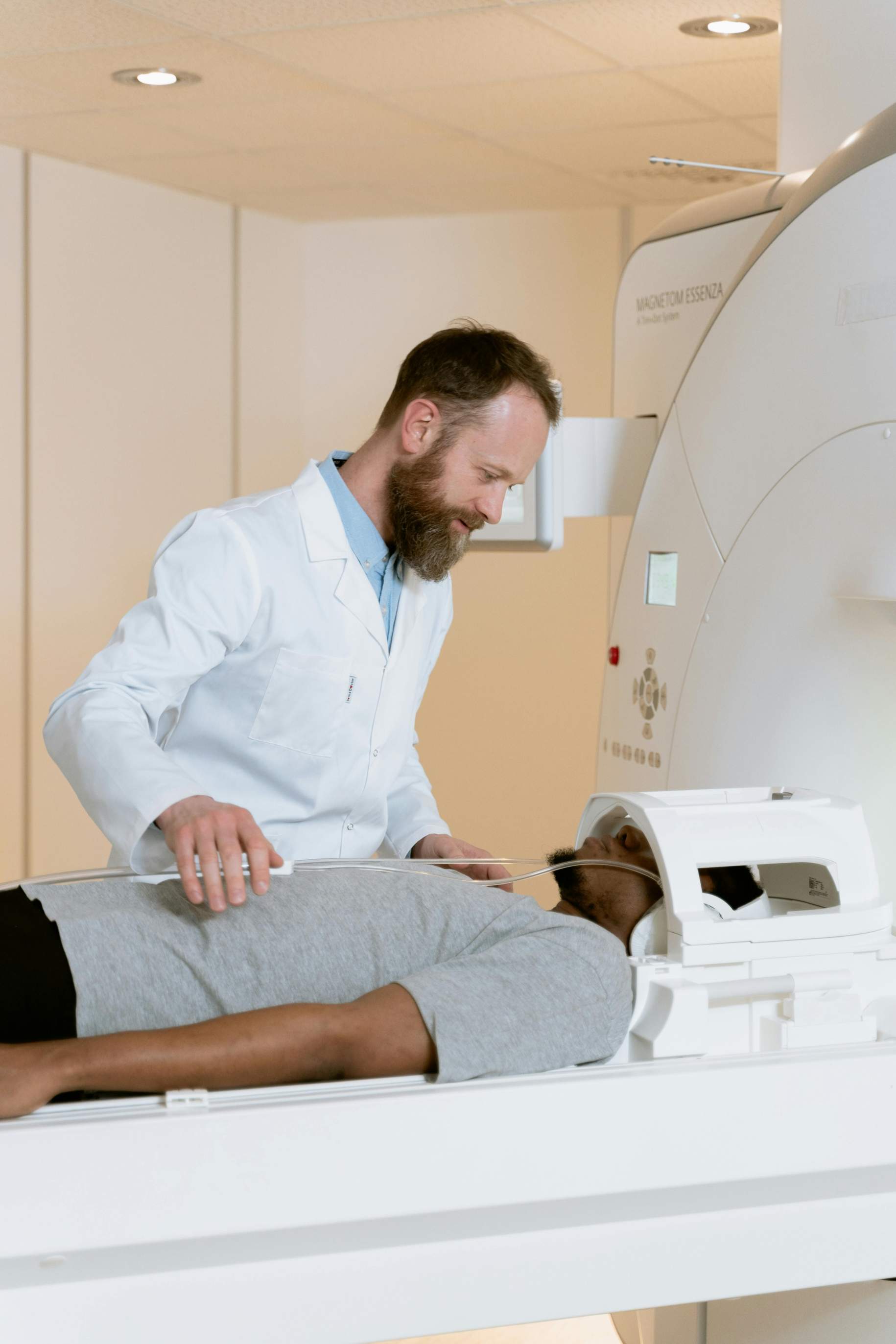Side Effects of MRI Scans


Magnetic Resonance Imaging (MRI) is a non-invasive and powerful diagnostic tool that has revolutionized medical imaging. It provides detailed images of the body's internal structures without using harmful radiation, making it a preferred method for diagnosing various conditions, including brain tumors and other neurological disorders. While MRI scans are generally safe and serious side effects are rare, understanding potential side effects can help patients and caregivers feel more comfortable and prepared for the procedure.
Common Side Effects of MRI Scans
Claustrophobia and Anxiety
One of the most common side effects of an MRI scan is claustrophobia or anxiety. The MRI machine's design requires patients to lie still inside a narrow, tube-like structure for an extended period. This enclosed space can be uncomfortable and anxiety-inducing for many people, especially those with a fear of confined spaces.
- Improvement Solution: If you experience claustrophobia, inform your healthcare provider. They can offer solutions such as sedation, anti-anxiety medication, or using an open MRI machine, which is less confining. Listening to music or having a companion nearby can also help ease anxiety.
Noise Discomfort
MRI machines produce loud thumping and tapping noises during the scan, which can be disturbing and uncomfortable for some patients. This noise is caused by the rapid switching of the magnetic fields and is an inherent part of the MRI process.
- Improvement Solution: Most MRI centers provide earplugs or headphones to help reduce the noise. Bringing your own music or audio book to listen to during the scan can also help distract from the noise.
Why should you have your surgery with Dr. Cohen?
Dr. Cohen
- 7,500+ specialized surgeries performed by your chosen surgeon
- More personalized care
- Extensive experience = higher success rate and quicker recovery times
Major Health Centers
- No control over choosing the surgeon caring for you
- One-size-fits-all care
- Less specialization
For more reasons, please click here.
Allergic Reactions to Contrast Material
In some MRI procedures, a contrast material called gadolinium is used to enhance the clarity of the MRI images, particularly in brain MRIs and brain tumor MRIs. Serious allergic reactions to gadolinium are rare, but some patients may experience mild reactions such as a rash or nausea.
- Improvement Solution: If you have a history of allergies or previous reactions to contrast materials, inform your healthcare provider. They can perform a pre-scan allergy test or choose an alternative imaging method. Symptoms of an allergic reaction can include rash, itching, nausea, and, in rare cases, difficulty breathing.
Temporary Discomfort or Pain
Lying still in one position during the MRI scan can cause temporary discomfort or pain, especially for patients with pre-existing conditions such as arthritis or chronic pain. This discomfort is usually temporary and resolves after the scan.
- Improvement Solution: Communicate any discomfort to the MRI technician. They may be able to provide cushioning or adjust your position slightly to alleviate pain. Taking pain medication before the scan, as advised by your healthcare provider, can also help manage discomfort.
Specific Considerations for Brain MRI Scans
Brain MRI scans, while incredibly useful, have some specific side effects that should be considered:
Headache and Dizziness
Some patients report experiencing headaches or dizziness after a brain MRI scan. These side effects are usually mild and temporary, resolving within a few hours.
- Improvement Solution: Staying hydrated and resting after the scan can help alleviate these symptoms. If headaches or dizziness persist, consult your healthcare provider.
Fatigue
The stress and anxiety associated with undergoing an MRI scan, combined with the need to remain still for an extended period, can lead to fatigue. This is more common in patients who are already dealing with a chronic illness.
- Improvement Solution: Ensure you get plenty of rest before and after the scan. Having a companion to drive you home and support you can also be beneficial.
Additional Considerations
Nephrogenic Systemic Fibrosis (NSF)
Gadolinium-based contrast agents carry a very low risk of nephrogenic systemic fibrosis (NSF) in patients with severe kidney problems. This is a serious but rare condition.
- Improvement Solution: Ensure your kidney function is assessed before the scan if you have kidney issues.
Metal Implants
Inform your healthcare provider about any metal implants, as these can be contraindications for an MRI or require special precautions.
- Improvement Solution: Proper assessment and preparation by your healthcare provider can ensure safety during the scan.
Key Takeaways
• Inform your healthcare provider if you have claustrophobia or anxiety; options like sedation, anti-anxiety medication, or open MRI machines can help.
• Use earplugs, headphones, or personal music to reduce noise discomfort during the MRI scan.
• Notify your healthcare provider about allergies; serious allergic reactions to gadolinium are rare, but pre-scan tests or alternative imaging may be used.
• Communicate with the MRI technician about any discomfort or pain during the scan; adjustments and pain management can be provided.
• Be aware of mild and temporary side effects like headaches, dizziness, fatigue, metallic taste, or sensations after using gadolinium contrast material.











